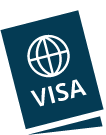By
Paul Lennane
August 5, 2023
Updated
September 18, 2024
Source: Somphop Krittayaworagul/Shutterstock
Papua New Guinea has a growing reputation as one of the Asia Pacific region’s hotspots for energy, process and infrastructure projects.
In mining, it’s a producer of copper, gold, nickel and cobalt, and the country has made a name for itself for a number of large liquified natural gas (LNG) project developments.
These include the $19 billion PNG LNG project, which produced 8.3 million tonnes of LNG in 2017 alone.
However, projects on this scale require a huge number of skilled workers, not all of which can be sourced from local talent pools. This means hiring managers rely heavily on expat workers, for whom a valid work permit is required before entering PNG.
With that in mind, here are our top five tips when it comes to Papua New Guinea visa requirements and successfully organizing work permits for your staff.
1. Work Permit Visas (WPV)
 |
For short-term, single-entry tourist or business travel to PNG, nationals of some countries are able to apply for visas on arrival. However, the work visa requirements are more complex. |
Companies wanting to hire an expatriate to work in Papua New Guinea need to ensure that all candidates are of sound character, possess the correct qualifications and can contribute to the wider community.
Successfully obtaining a PNG work permit visa (WPV) is an essential part of the onboarding process. Without the Work Permit approval and visa grant, a candidate cannot be mobilized. As such, it’s important that the utmost care is taken when completing an application.
Expatriates applying for a WPV are required to be passport holders in possession of the correct documentation and have the necessary experience, skills and qualifications. In addition, any dependants accompanying an individual will also need to apply for visas.
WPV applications are not complicated, but every question must be answered accurately by the applicant. There’s no room for error when completing the labour department forms. Be sure to pay attention to the expiry dates on supporting documents, too.
Follow all instructions. In doing so, you will save time and ensure all documentation is completed correctly and supporting documents are authenticated. You can then submit the application forms through a PNG diplomatic mission.
2. Allow plenty of time for PNG work permit clearance
 |
Following the submission of an application for a WPV, recruiters and applicants should allow 6 weeks as outlined by the Depart of Labour for an application to be approved. |
In some cases, Papua New Guinea visa applications are approved ahead of standard processing times.
However, we’d recommend hiring managers and candidates submit their visa application forms sooner rather than later to ensure they allow sufficient time for their requests to be processed.
3. Concurrent activity – Candidate medicals should be arranged when the PNG work permit is being lodged
 |
As with a WPV application, getting a medical certificate for an applicant can be a lengthy process and the thorough nature of the tests present potential for delays. |
It isn’t uncommon for additional medical tests to be requested when arranging a PNG work permit. This is in addition to the initial examination prior to medical clearance being granted.
As such, care should be taken in planning which step to complete and when.
4. Proof of Training is a standard requirement for candidates
 |
Hiring managers should note that training, or the proven ability to train, is now a Labour Department requirement for companies looking to organize Papua New Guinea visas on behalf of their workers. This is to ensure expats contribute to upskilling the local labour force. |
Documentation in the form of certified training certificates must be provided to outline the credentials of would-be workers. Alternatively, references comprising dates, times and number of people trained in a workplace discipline should be disclosed.
5. Always use experienced agencies
 |
When hiring for roles in Papua New Guinea, it’s highly recommended you work alongside a reputable, well-established employment agency. Ensure the agency is registered and issued a license by the National Employment Services of the Department of Labour. |
They’ll be able to help you check all the boxes described above and mobilize your expat workforce in as short a timeframe as possible – ensuring work and entry permits are valid, minimizing delays, and generally sharing their knowledge and expertise when organizing Papua New Guinea visas.
More generally, working with an agency presents an opportunity for organizations to seek guidance and advice on their wider recruitment and mobilization challenges, thus alleviating any stress during the hiring process.
How can Airswift help your company?
With over 10 years operating in Port Moresby, PNG and managing more than 900 work permits and visa immigration files per year, Airswift has the recruitment and mobility expertise and global infrastructure to deliver workforce solutions that meet a wide range of client needs.
To find out more about the services we offer companies looking to mobilise workers in PNG, visit our country page or our Employer of Record page
